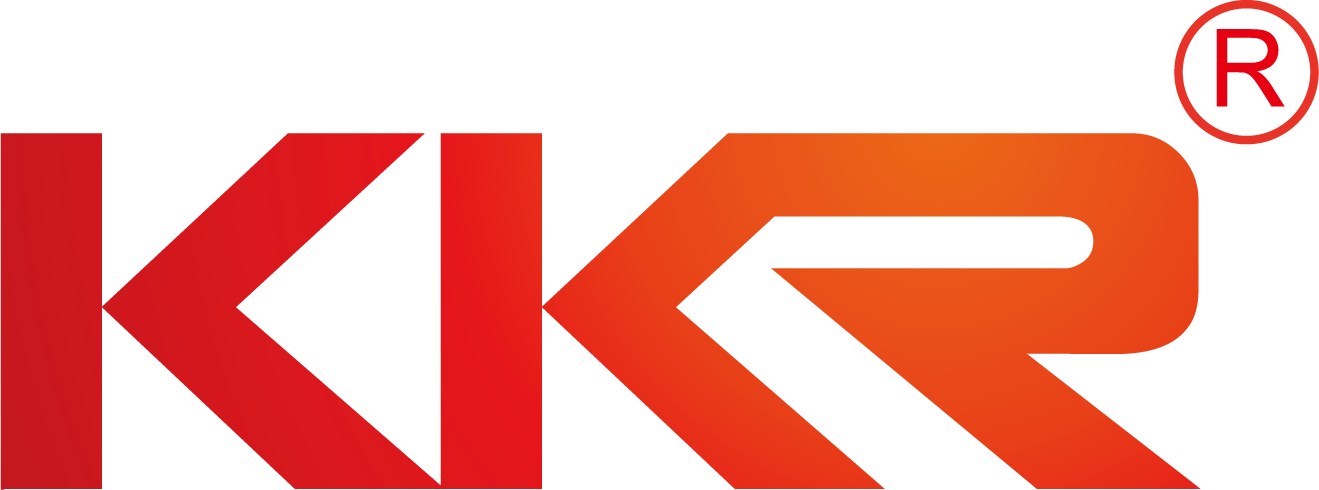What is Wudu Sink and the Benefits of Using it for Ablution?
There are currently more than two billion Muslims worldwide. As per their faith, they are obligated to perform prayers (Salah) five times a day. Each prayer requires ablution (Wudu in Arabic), which necessitates the use of a Wudu sink. The market for wudu sinks is massive, offering significant benefits, including safety and convenience.
The traditional or earlier technique of performing wuzu changed with the invention of sewage systems and bathroom sinks. The process requires cleaning the feet, which Muslims perform by lifting their feet and placing them in the sink. It is a dangerous movement that increases the chances of falling, as the floor may already be wet. To avoid such an unwanted situation, a wudu wash basin makes foot cleaning accessible.
This article will explore what a wudu sink is, why muslims need it, the types of wudu sinks, and how it benefits a muslim performing ablution.
I. Why Do Muslims Need Wudu Sinks?
The initial method for performing wudu was to use a container, such as a jug or a bowl, or to draw water from natural sources, like rivers or wells. As the world grew and methods of cleaning evolved, the use of sinks became the new norm. Muslims adapted to the change, particularly in the West, by performing ablution using the basins we have in bathrooms.
◆ Method to Perform Wudu or Ablution
Muslims need to perform wuzu or ablution before every prayer that is offered 5 times at specific times. It involves:
- Intention: Make your intention to perform Wudu.
- Hands: Wash hands to wrists (3 times).
- Mouth: Rinse mouth (3 times).
- Nose: Rinse nose (3 times).
- Face: Wash face (3 times).
- Arms: Wash right arm, then left arm to elbows (3 times each).
- Head: Wipe over head (once).
- Ears: Wipe ears (once).
- Feet: Wash right foot, then left foot to ankles (3 times each).
◆ The Challenge of Washing the Feet
All the initial steps before cleaning the feet are easy to perform using basins. However, the final step requires stretching the leg onto the basin while standing on a single foot. The problem with using basins designed for hand and face washing is that they are too high, requiring one to stretch a leg onto the sink and clean.
In the case of a wet floor or any slight loss of focus, the fall hazard can be significant. This unstable position is not only uncomfortable but also poses a considerable safety risk, particularly for the elderly, individuals with mobility issues, or even perfectly able people in a hurry or on a slippery surface. The safety risk makes it necessary for the Muslim community to adapt to new ways to perform ablution, i.e, especially designed Wudu Sink.
II. What is a Wudu Sink?
A wudu sink is a fixture that facilitates the process of ablution before prayer as per the Islamic ritual of Wudu. These sinks are tailor-made to ensure convenience, safety, and hygiene.
▪ Key Design Features of a Wudu Sink
A wudu sink is a typical plumbing fixture that requires connections for the supply of clean water and drainage. Besides its similarity with basins, here are some design features unique to the wudu sink:
- Foot Pedal: It is an actuating mechanism that controls the flow of water to the foot. It allows hand-free operation, reducing the chances of germs from spreading. Another advantage of the foot pedal is its contribution to water conservation through controlled use, achieved by applying pressure.
- Seating: The key difference between a typical sink and a wudu wash basin is the seating. The seat is positioned in front of the sink, allowing the user to sit comfortably and perform ablutions without the risk of falling or slipping.
- Splash Guards: These are a structural design that keeps the water within the sink and reduces splashing, which can cause a wet floor.
- Built-in Dryer: Some high-end and premium wudu sinks feature a built-in dryer that can immediately dry the feet, preventing water from spreading across the floor.
▪ Materials and Construction
To prevent slippage, the wudu sink manufacturers utilize a non-slip material with easy-to-clean features. Modern wudu sinks use solid surface materials to blend the premium look of stone with the practical benefits of a non-porous, highly durable, and hygienic surface.
▪ Applications of Wudu Sink
Muslims need to pray fixed 5 times a day, irrespective of location. Therefore, the need for a wudu sink in the following places is usually the standard:
- Mosques & Prayer Rooms: Mosques are places of worship where Muslims gather to offer prayer. In some cases, such as airports, parks, and malls, there might be a prayer room. To perform ablution, such locations will have a wudu wash basin.
- Homes: Praying at home is also common amongst muslims. The availability of a wudu sink makes the process of ablution convenient.
- Schools: Muslims as young as 7 years old start to pray. They will need a place to pray while they are away studying. Therefore, schools may feature a wudu sink for the safety and convenience of their students.
- Commercial Buildings: Malls, recreational centers, shopping centers, offices, hospitals, airports, and sports complexes will all feature a wudu sink, especially in Muslim-majority countries.
III. Types of Wudu Sinks
Depending on the user's requirement, manufacturers produce a variety of wudu sinks. The types are based on mounting style.
- Freestanding: Wudu sinks with footings placed on the floor are the most stable and easy-to-install units. By freestanding, it does not require any mounting support.
- Wall-Mounted: A plumber or a designated professional will install a mounting system on the wall, then attach the wall-mounted sink to it.
- Integrated Units: Some manufacturers and interior designers will integrate the wudu sink into the surroundings. The sink will seamlessly blend with the interior furniture to create a luxurious look.
Note: Some manufacturers may differentiate types of sinks based on material and surface finishes, such as ceramic, acrylic, stainless steel, matte, and glossy finishes.
IV. The Practical Benefits of Using a Wudu Sink
The evolution of the technique for performing wudu and innovations in the design of wudu wash basins translate to a host of practical benefits. Let's analyze them to see why they are suitable for any setup:
A. Enhanced Hygiene and Cleanliness
Using a typical wash basin to perform ablution can cause splashing of water and lead to cross-contamination. It also increases the burden of cleaning the splashed water on the floor and walls. A dedicated foot-washing area with a wudu sink can make the process cleaner by utilizing splash guards. Moreover, the use of solid surface material with antibacterial and non-porous properties further prevents the growth and spread of germs.
B. Comfort and Ergonomics
The freestanding wudu sink with a seat is the most accessible and comfortable option. It is suitable for the elderly, children, and those with limited mobility. The design promotes a relaxed sitting posture. There is plenty of space for movability, allowing an easy wudu process. Some wudu wash basins will offer handlebars to support movement. They may also include compact shower heads, faucets, and tissue boxes for enhanced ergonomics and hygiene.
C. Water Conservation
As the user is not busy balancing themselves on a single foot, turning the faucet or shower head water on and off is more accessible. With the user not balancing on a single foot, there is also more water conservation. The foot pedal design further enhances water conservation by only supplying water in response to actuation by the foot pedal. Additionally, low-flow faucets or timed water delivery options are available in wudu sinks.
D. Safety and Accessibility
The use of a non-slip surface and a dedicated platform with proper drainage reduces the likelihood of slips and falls. Integrated wudu sinks will offer grab rails for enhanced support. Moreover, it makes performing ablution convenient for users with physical challenges.
V. The Spiritual and Mental Benefits
Performance of ablution is not only a means to clean one's extremities and exposed areas, but it also has numerous spiritual and mental benefits. Let's analyze them:
A. Fostering Focus and Devotion
Performance of Wudu is not just a ritual that followers of Islam perform for cleanliness. It is a moment to enhance spiritual purity and foster a better connection with the creator. Using a wudu sink removes distractions and discomfort, allowing for a deeper connection with the supreme being.
B. Promoting Tranquility and Mindfulness
A calmer and organized environment around the wudu sinks, with no water spills and clean walkways, creates a serene and peaceful atmosphere for users. The mindfulness approach to ablution further enhances the spiritual preparation necessary before performing prayer.
C. Cultural and Community Significance
Muslim-majority countries may feature wudu sinks in every public place. However, in countries where Muslims are in a minority, the presence of a wudu wash basin gives them a sense of community and inclusivity. The shared ritual of praying together can foster a sense of collective identity and community, creating spaces where individuals can connect, offer mutual support, and experience a sense of belonging within a larger group.
Conclusion: Embracing the Future of Ablution
Muslims have been performing ablution for 1400+ years. The process of performing the ablution has remained the same, but techniques have evolved as the associated facilities and technology have advanced. The most recent design for performing wudu is dedicated wudu sinks that combine convenience and practicality. Moreover, they offer immense spiritual and social benefits. Their key role is making ablution more accessible, hygienic, and spiritually enriching.
The adoption of these wudu basins is expected to increase over time as more people become familiar with the technology. If you want to set up a wudu sink in your facility, then consider the KKR wudu wash basin. Crafted from non-porous solid surfaces, KKR wudu sinks feature ergonomic design, integrated seating, and splash protection, ensuring comfort, hygiene, and dignity. With customizable sizes and finishes, they suit mosques, schools, and homes, making ablution more accessible while honoring Islamic traditions through modern, durable, and aesthetically pleasing solutions.

Quick Links
KingKonree Products
Company Info
Address:Room No. 2408-2508, Building 5A, Longguang Jiuzuan, Longhua District, Shenzhen, China
Zip Code: 518131
Tel: +86 (0)755-82875700
Fax: +86 (0)755-82875921











